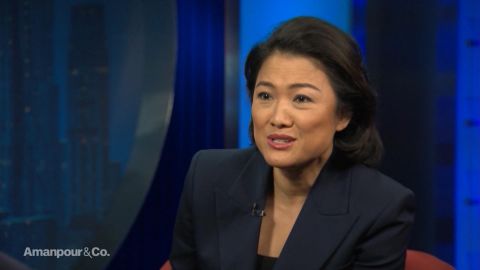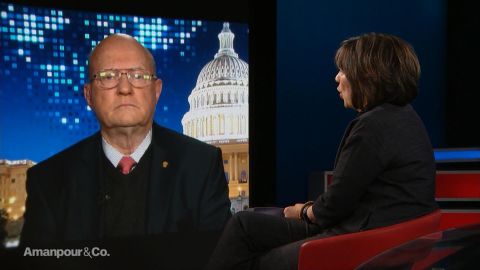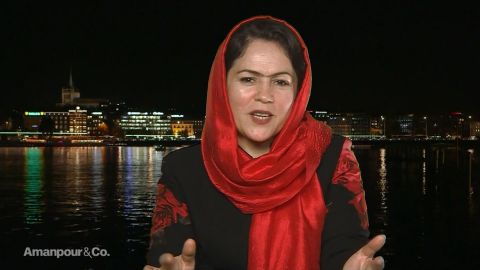Read Transcript EXPAND
CHRISTIANE AMANPOUR: What do you make of, “here we go again.” You know, National Intelligence, the President — I mean in this instance they’re on different sides?
LAWRENCE WILKERSON: Well you know I’m not fan of the U.S. Intelligence Community, particularly with regard to Iraq’s weapons of mass destruction. But at the same I time I think — I think DNI Coats is pretty level-headed, he gave a presentation that didn’t break really any new ground. Most of my colleagues, most of the experts on the Korea — particularly North Korea believe that Kim Jong-un will not give up his nuclear weapons. I think at the end of the day Donald Trump knows that too, but he’s got some plans about how he might finesse that. Japan might not like that very much. With regard to ISIS I just read an assessment this morning, the caliphate may be down but ISIS is still alive and well, they’re even in the southern Philippines killing people. With regard to Iran, Donald Trump’s remark to Coats’ remark about “oh they just shot off some rockets,” shows that he’s a little bit detached from reality on that one — which doesn’t surprise me that much, that’s a detail the president probably wouldn’t be apprised of. The reason Iranians are shooting rockets off is basically because that’s their principle form of military defense because we have sold billions — tens of billions of dollars worth of weaponry to Saudi Arabia, their principle enemy across the straight, so that’s very understandable and it really has nothing to do with their nuclear program which the Intelligence Community even agreed in the last part of the Bush administration they were not trying to do. They had once wanted to develop (ph) a nuclear weapon, they made a decision sometime around the 2000’s — mid-2000’s that they weren’t going to go for a nuclear weapon for cost reasons, for international relations reasons and so forth. The fear I have is that the United States violation — not abandonment of — violation of, the Nuclear Agreement — a U.N. Security Council codified agreement. Our violation of that agreement might ultimately compel Iran to change its mind and to develop a nuclear weapon which would be exactly the opposite of what we, Europe and probably the rest of the world wants.
AMANPOUR: So you would support then, the Europeans taking any means necessary to try to keep this deal in place? For instance they have now come up with some kind of mechanism that will finesse payments for Iran’s oil and other things I suppose, as enshrined in that U.N. encoded nuclear deal to avoid U.S. sanctions and punitive measures? You would — you would support that?
WILKERSON: Actually, the special vehicle, as I understand it, and I read Frederica Mogherini and others’ comments on in this morning, the special vehicle is mostly for humanitarian aid and food. So I’m all for that.
About This Episode EXPAND
Christiane Amanpour speaks with Juan Guaidó about his fight to oust Venezuelan President Maduro; Lawrence Wilkerson about President Trump’s disagreements with his staff; and Afghan MP Fawzia Koofi about the state of affairs in Afghanistan. Walter Isaacson speaks with Zhang Xin, CEO of SOHO China, about U.S.-China relations and her remarkable past.
LEARN MORE



